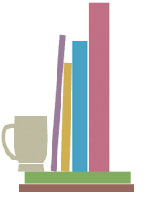 One of the many things we missed while we were away was the appearance of Forbes Magazine’s special Books edition. It’s right on the ball, with a number of fascinating articles from the people who really know what they’re talking about, so you’ve got the Institute for the Future of the Book’s Ben Vershbow on The Networked Book, Boingboing’s Cory Doctorow on giving books away for free, and UC’s Jonathan Enfield on new challenges to copyright. It’s a really good selection, and all the commentators seem to be saying the same thing: technology is coming, but books aren’t going away.
One of the many things we missed while we were away was the appearance of Forbes Magazine’s special Books edition. It’s right on the ball, with a number of fascinating articles from the people who really know what they’re talking about, so you’ve got the Institute for the Future of the Book’s Ben Vershbow on The Networked Book, Boingboing’s Cory Doctorow on giving books away for free, and UC’s Jonathan Enfield on new challenges to copyright. It’s a really good selection, and all the commentators seem to be saying the same thing: technology is coming, but books aren’t going away.
Cory Doctorow’s piece is possibly the most interesting – not just from how assured he is of his model, which he has every right to be, having released three novels for free online, but because of his analysis of the link between social networking and the social book:
The thing about an e-book is that it’s a social object. It wants to be copied from friend to friend, beamed from a Palm device, pasted into a mailing list. It begs to be converted to witty signatures at the bottom of e-mails. It is so fluid and intangible that it can spread itself over your whole life. Nothing sells books like a personal recommendation–when I worked in a bookstore, the sweetest words we could hear were “My friend suggested I pick up….” The friend had made the sale for us, we just had to consummate it. In an age of online friendship, e-books trump dead trees for word of mouth.
If ebooks do take over (and, Doctorow believes, this is by no means certain), we’ve got to think of new ways to monetise them, because you just can’t charge for easy-copy bits like you can for physical paper. But creatives have wethered these kinds of changes before:
This isn’t the first time creative entrepreneurs have gone through one of these transitions. Vaudeville performers had to transition to radio, an abrupt shift from having perfect control over who could hear a performance (if they don’t buy a ticket, you throw them out) to no control whatsoever (any family whose 12-year-old could build a crystal set, the day’s equivalent of installing file-sharing software, could tune in). There were business models for radio, but predicting them a priori wasn’t easy. Who could have foreseen that radio’s great fortunes would be had through creating a blanket license, securing a Congressional consent decree, chartering a collecting society and inventing a new form of statistical mathematics to fund it?
This description of the e-shift is much like my humble own previously, comparing it to the move from chamber to recorded music. But the essential point here is that more readers must be, by definition, a good thing. It’s an honour to be pirated: it’s a sign of recognition. And,
There has never been a time when more people were reading more words by more authors. The Internet is a literary world of written words. What a fine thing that is for writers.
Comments are closed. Feel free to email if you have something to say, or leave a trackback from your own site.